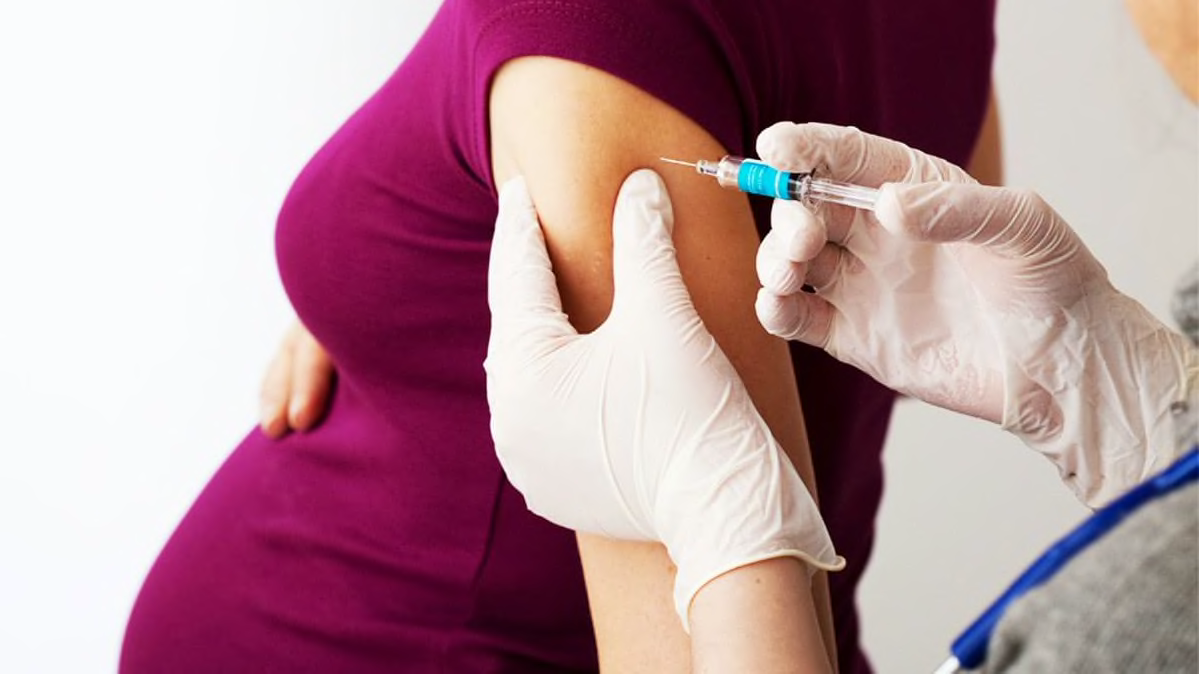
Many women are skipping the two vaccines that are advised during pregnancy to help keep them and their babies safe.
Just 54 percent of pregnant women received a flu shot between August 2018 and April 2019, according to data released today from the Centers for Disease Control and Prevention. Over the same time period, just 55 percent of pregnant women received Tdap, the adult vaccine against tetanus, diphtheria, and pertussis (whooping cough).
And only 35 percent of pregnant women received both vaccines, says the CDC, despite the fact that the agency recommends them during that time.
"Influenza and pertussis are serious infections that can be deadly for babies, especially those who are too young to be vaccinated directly," says Anne Schuchat, M.D., CDC's principal deputy director.
Getting the flu shot can cut a pregnant woman's chances of being hospitalized because of the flu by about 40 percent, according to a 2018 study in the journal Clinical Infectious Diseases.
And other research suggests that Tdap can reduce the likelihood that an infant will catch whooping cough during the first two months of life by 78 percent.
The low vaccination rates are concerning, experts say. Among all children, babies under 6 months old—who are too young to be vaccinated against the flu themselves—have the highest risk of dying from the flu, Schuchat says. "Women who are pregnant are more than twice as likely to be hospitalized if they develop influenza, compared with similar aged women," she adds.
And pertussis can be fatal to infants: About half of babies younger than a year who come down with the illness are hospitalized, and 1 in 100 of those who are hospitalized die.
Women are advised to avoid many medications during pregnancy, and some may be fearful of having shots during this time, too. But scientists say these two vaccines are both important and safe. Here's what you need to know.
The Flu Shot During Pregnancy
A flu shot is recommended during each pregnancy, and it's fine to get at any point. If you're pregnant before flu season begins, try to be vaccinated by the end of October so that you're protected before the season gains momentum. (But if that timing doesn't work for you, get vaccinated when you can.)
Having a flu shot during pregnancy will protect your baby from the flu during the first six months of life, before he or she is old enough to be vaccinated. It helps protect babies in utero as well.
And a recent study in the journal Birth Defects Research shows that the flu can even endanger a developing fetus. Women who were hospitalized for the flu during the 2009 pandemic were more likely to deliver preterm, and their infants were more likely to have low birth weights and be in poorer overall health, compared with women who didn't get the flu, according to the study.
The flu shot is also critical for keeping expectant moms healthy. Pregnant women have a much greater chance than their nonpregnant peers of developing a serious complication, such as high fever, pneumonia, or sepsis—or even dying—if they come down with the flu.
The main reason is that the immune system can't fight infections as easily during pregnancy because it's busy protecting the fetus, as well as mom, says Laura Riley, M.D., an obstetrician and the gynecologist-in-chief at NewYork-Presbyterian/Weill Cornell Medical Center.
If you're concerned that the shot might harm you or your baby, numerous studies over the years have demonstrated that it's safe—and that it can't give either of you the flu (though it might cause temporary side effects, such as arm pain or a low fever).
But note: Get the flu shot, not the nasal spray flu vaccine, which is made with a live attenuated (or weakened) flu virus. Vaccines made with live attenuated viruses aren't recommended for pregnant women.
About the Whooping Cough Vaccine
Pregnant women should receive a dose of Tdap during every pregnancy, some time between the 27th and 36th week, according to the CDC.
Pertussis, or whooping cough, a bacterial illness that can cause intense coughing fits, is usually no more severe during pregnancy than at other times of adult life, according to Jeanne Sheffield, M.D., director of the division of maternal-fetal medicine and a professor in the Johns Hopkins Medicine department of gynecology and obstetrics.
But it can be highly dangerous for infants, and babies don't start receiving the DTaP series—the childhood vaccine against diphtheria, tetanus, and pertussis—until they're 2 months old.
"Infected infants may develop pneumonia, convulsions, encephalopathy, and death," Sheffield says.
Tdap is safe for pregnant mothers and their babies, according to a good deal of research.
Are There Other Vaccines You Should Get?
Tdap and flu are the only vaccines recommended for all pregnant women, but some people may need additional shots—so check with your doctor.
Women who've been exposed to hepatitis B, for instance, should receive a vaccination against it.
If you're planning to travel internationally while you're pregnant, ask whether you should receive any vaccines to protect from diseases that are common where you're going.
And if you get pregnant and are missing any vaccinations you should have received in childhood, such as a dose of MMR, the vaccine against measles, mumps, and rubella, ask your doctor whether you need to get caught up.
These can be administered right after you give birth—that will help keep you from getting sick, and if you breastfeed, you'll pass some antibodies to those illnesses on to your baby via your breast milk.




















